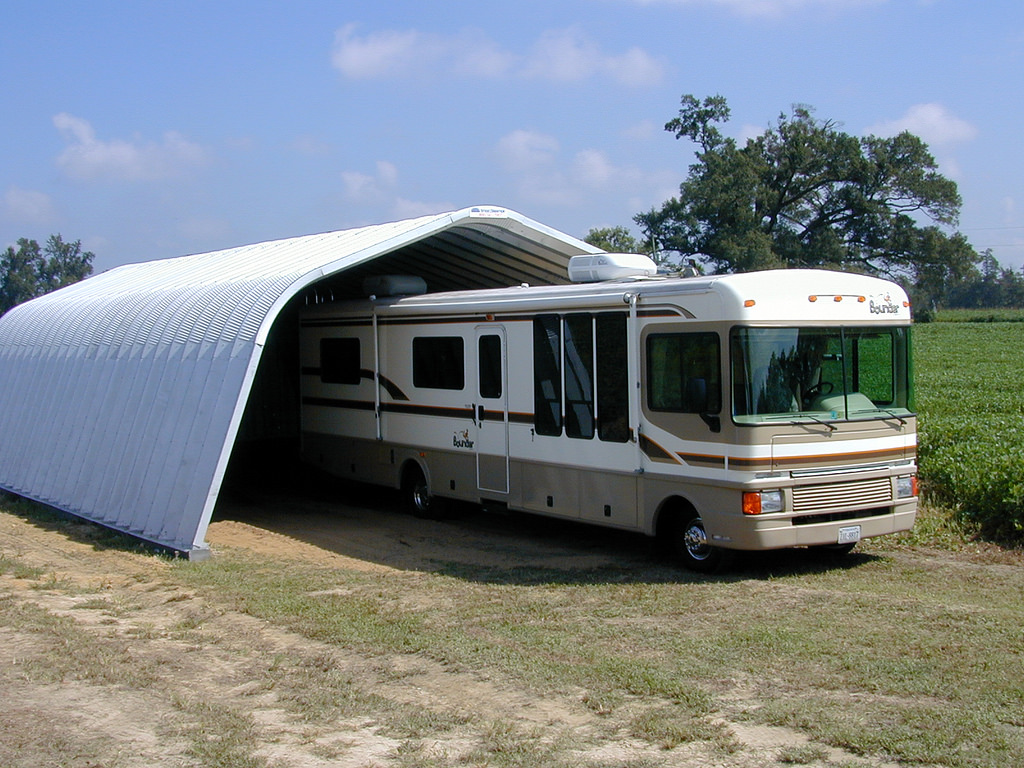
Everything You Need to Know About Choosing the Right Type of RV Storage
Whether you only have access to street parking or your HOA loses its mind when it comes to RV’s parked in your driveway, there is a pretty good chance you need a place to keep your camper when you aren’t hitting the open road. Here is everything you need to know about choosing the right type of RV storage.
But not all RV storage options are created equal, and it is vital that you choose a storage space that will protect your investment. Whatever option you choose will depend mostly on your budget, the weather where you live, and how worried you are about security.
Before you commit to parking your Winnebago on a random lot you know nothing about, here is a detailed breakdown of the four different types of RV storage you are likely to encounter:
Enclosed RV Storage
An enclosed RV storage unit is the safest and most secure way to stash your home on wheels for the off season. This is basically a very large self-storage unit for your RV, which will provide the same protection as a private garage.
Your vehicle will access the unit via a large roll-up door to which you control the lock and key, so be sure that you choose a unit that is big enough for your RV before you find yourself in a tight spot. While an enclosed RV storage unit is the most secure option, it is also the most expensive type of RV storage option you will encounter in this list of everything you need to know about choosing the right type of RV storage.
Indoor RV Storage
While you might prefer the privacy and security of an enclosed unit, you might save a bit of dough by storing your RV alongside other vehicles in a secure, indoor building. This type of storage is pretty much a hangar or warehouse for RVs. While you would share access with other RV owners, your vehicle will still be protected from the sun, rain and snow.
Covered RV Storage
Looking for a more affordable option that still provides some cover from the elements?
A covered RV storage space may be what you are looking for. A covered RV spot is outdoors, but there is a shelter that you park your camper under. This protects it from direct sunlight and precipitation, but you will still need to winterize your vehicle properly.
Want to Grow Your Campground Business?
Book a FREE, personalized demo to learn about how RoverPass will save you time and help you earn more revenue
In some cases a covered storage space will provide walls between spots (kind of like a bathroom stall), but it is still not as secure as an enclosed or indoor unit. As a result, a covered space should be significantly cheaper. Check to see if the facility has other security features such as gated access, perimeter lighting and video surveillance to deter potential burglars or vandals.
If you live in an area with extreme weather, such as Phoenix or Minneapolis, you should really consider paying for an indoor or enclosed unit if you want to extend the life of your camper.
RV Parking Space
If you are looking for the cheapest option, look no further than an RV parking space. But be forewarned, your vehicle will be exposed to all manner of weather, including hail. With an RV parking space be aware that the parking area might be paved, but could also be dirt or gravel. You will definitely want to get a quality cover for your RV that will provide some minimum level of weather protection.
If you have an older model RV and live in a temperate climate, it might make sense to save some money and opt for an outdoor parking space.
Choosing the Best Option
There are obviously other points to consider before making a final choice. You might prefer a space that is conveniently located to your home, or one that has a lot of positive reviews from other RV enthusiasts.
In addition to self-storage, the website SpareFoot.com also makes it easy to find and compare prices for RV storage options near you. When you find one you like, you can reserve online at no upfront cost. You won’t have to pay until you arrive at the facility to drop off your vehicle. We hope that you enjoyed everything you need to know about choosing the right type of RV storage.
Author: Alexander Harris, SpareFoot.com Web Editor